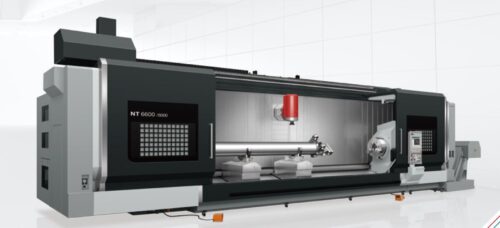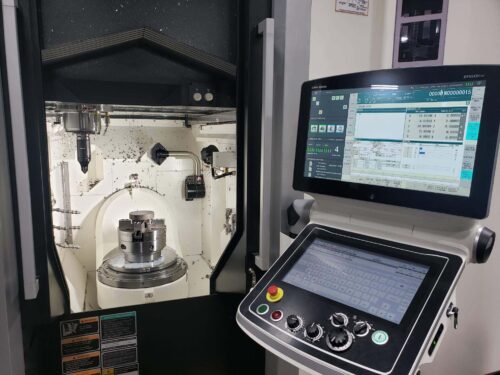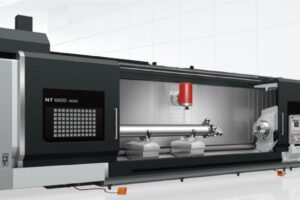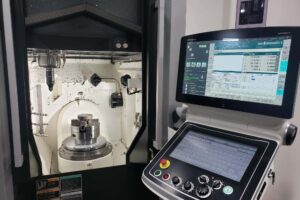At Grand Valley Manufacturing Co., we specialize in providing cutting-edge mill turn services that deliver precision and efficiency. Our advanced CNC milling and turning capabilities ensure superior results, meeting the needs of our clients across multiple sectors.
What is Mill-Turn Machining?
Mill-turn machining or mill–turning combines the best of CNC milling and turning in a single hybrid machine. CNC milling involves a rotating tool that removes material from a stationary or controlled-path workpiece to create complex shapes. On the other hand, CNC turning uses a lathe to rotate the workpiece while a stationary cutting tool shapes it, ideal for producing cylindrical parts and radial symmetry.
Mill-turning integrates these processes, allowing for simultaneous milling and turning. This method uses a mill-turn center that handles both operations in one setup, offering significant advantages over traditional methods.
Features of Mill-Turn Machining
Complex Parts Production
Mill-turning excels in producing complex parts with intricate dimensions and tight tolerances. Unlike conventional CNC milling and turning, which require transferring the workpiece between machines, mill-turn machining accomplishes everything in one setup. This streamlined process enhances efficiency and reduces the potential for errors associated with multiple setups.
Quicker Production
The efficiency of Mill-turning means faster production times. By eliminating the need for multiple setups and re-alignments, our mill-turn machines complete the entire production process more quickly. This not only speeds up manufacturing but also minimizes operator involvement, reducing labor costs and production time.
High Accuracy
Precision is important in manufacturing, and Mill-turning provides exceptional accuracy and repeatability. Since the workpiece is moved only once, the risk of misalignment and errors is significantly reduced. This ensures that each part meets stringent quality standards and maintains consistent performance across batches.
Benefits of Mill-Turn Services at Grand Valley Manufacturing Co.
- Superior CNC Mill Turn Services: Grand Valley Manufacturing Co. offers advanced CNC mill turn services, leveraging the latest technology to achieve outstanding results. Our expertise in mill-turning ensures that we can handle a wide range of complex and high-precision projects, meeting the specific needs of each client.
- Flexibility and Speed: Our mill-turn capabilities provide flexibility to accommodate various manufacturing requirements. Whether you need high production volumes or intricate geometric shapes, our mill-turn machines can handle it all with speed and precision. This flexibility allows us to deliver customized solutions tailored to your unique specifications.
- Cost Efficiency: Mill-turning offers cost-saving benefits by reducing the number of setups and minimizing errors. This streamlined process translates into lower manufacturing costs and higher efficiency, making it a cost-effective choice for producing high-quality parts.
Typical Applications of Mill-Turn Machining
In the aerospace industry, precision, reliability, and quality are crucial. Our mill-turn services are well-suited for producing aerospace components that meet strict standards. The ability to handle complex geometries and tight tolerances ensures that we can deliver parts that perform reliably in demanding applications.
Mill-turning is ideal for high-production runs of parts with complex shapes. The combined milling and turning processes allow us to manufacture intricate components efficiently, making it a preferred choice for industries requiring detailed and precise parts.
Why Choose Grand Valley Manufacturing Co.?
Apart from our CNC turning and milling services, we offer mill-turn machining for small and large part capabilities, high-volume production, and close tolerance applications. With that said, our expertise continuously develops to provide better value for your needs. Contact us today to learn more about how our CNC mill turn services can meet your manufacturing needs. Request a quote for larger projects, and we can find a cost-effective solution.




